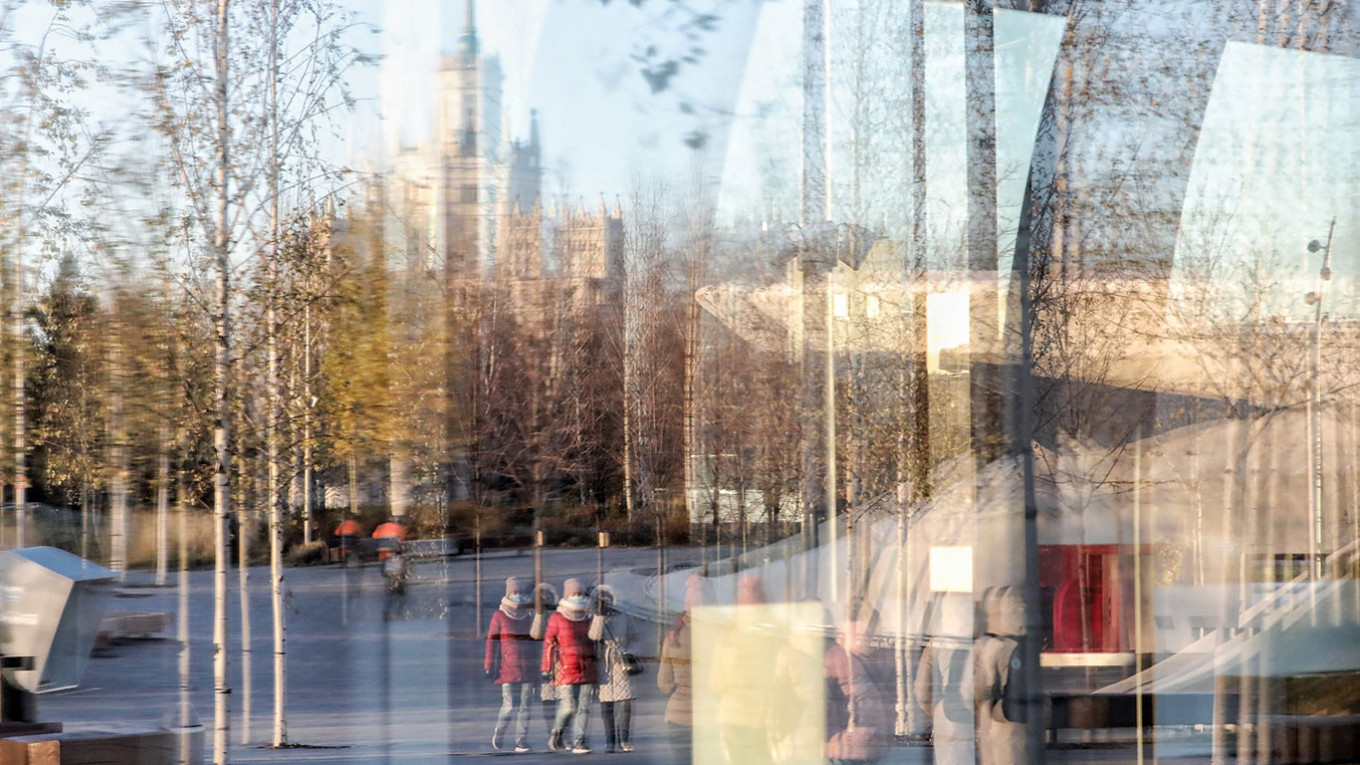Starting Thursday, thousands of Muscovites will be ordered to stay home following a national “non-working” decree aimed at halting soaring coronavirus cases and record deaths.
From Oct. 28-Nov. 7, only essential workers in the Russian capital, a city of 12 million, will be permitted to go to work in person.
The Moscow Times answers some of the most common questions regarding the upcoming “non-working” week:
What does ‘non-working’ mean?
Russia’s “non-working” periods are effectively a paid vacation for non-essential workers.
The restrictions suspend all businesses and services, dining, sports, recreation, entertainment and film screenings, with the exception of organizations that serve city infrastructure and sell essential goods like medicines and food.
While President Vladimir Putin has said that all employee salaries should be paid, government support for small and medium-sized businesses to cover salaries is limited to subsidized loans equal to the minimum wage — 12,792 rubles ($180) per month.
Unlike national holidays and weekends, “non-working days” are not legally defined in the Russian Labor Code. The term was introduced for the first time last spring as authorities sought to stem the rising tide of the Covid-19 pandemic.
Who gets time off?
All employees working for non-essential businesses will get time off during this period.
Private businesses will decide whether to give their employees paid time off or switch them to remote work, with many expected to allow employees to work remotely.
Online shopping and deliveries are not affected by the restrictions. Government services will still be available online, with in-person public services suspended.
What about students?
Schoolchildren in kindergarten and primary school will be on holiday, with extracurricular and sporting activities suspended. Preschoolers whose parents or guardians are unable to stay home with them will be able to spend the day at city kindergartens.
High schools, colleges and universities will hold classes exclusively remotely.
What about restaurants?
Restaurants and cafes in Moscow will stay open for delivery and take-out only. Office and workplace canteens and hotel restaurants are allowed to operate with restricted access.
On Monday, President Vladimir Putin signed a decree instructing regional leaders to ban restaurants, nightclubs and other entertainment venues from operating between 11:00 p.m. and 6:00 a.m.
This summer, Moscow officials briefly imposed rules requiring all restaurant diners to prove their vaccination or recent recovery from Covid-19, but the rules were quickly reversed as they hit the restaurant industry hard.
What about wearing masks?
Moscow continues to require masks to be worn inside public transport, taxis, stores and other public spaces.
Moreover, city authorities will use facial-recognition technology to monitor compliance with restrictions in supermarkets, restaurants and elsewhere, with fines of up to 5,000 rubles ($71) for violations inside the metro and 4,000 rubles ($57) in shops.
Can I go to theaters and museums?
Yes, theaters and museums are allowed to stay open at 50% attendance capacity for visitors with masks and QR codes proving vaccination, recent negative PCR test or antibody test results. Mass events, except those authorized by health officials, will be banned.
Do I need a QR code?
An official QR code proving vaccination in the past six months, recent negative PCR test results or antibody test results will be required to enter theaters, museums and other public spaces.
Can I go for a walk?
Yes.
What restrictions will stay in place after Nov. 7?
Following the non-working period, QR codes and masks will be mandatory for entering theaters and museums, as well as for concerts, entertainment, cultural and sporting events with 500 people or more in attendance, the Moscow decree said. Capacity at these events will be capped at 70%.
AFP contributed reporting.
A Message from The Moscow Times:
Dear readers,
We are facing unprecedented challenges. Russia's Prosecutor General's Office has designated The Moscow Times as an "undesirable" organization, criminalizing our work and putting our staff at risk of prosecution. This follows our earlier unjust labeling as a "foreign agent."
These actions are direct attempts to silence independent journalism in Russia. The authorities claim our work "discredits the decisions of the Russian leadership." We see things differently: we strive to provide accurate, unbiased reporting on Russia.
We, the journalists of The Moscow Times, refuse to be silenced. But to continue our work, we need your help.
Your support, no matter how small, makes a world of difference. If you can, please support us monthly starting from just $2. It's quick to set up, and every contribution makes a significant impact.
By supporting The Moscow Times, you're defending open, independent journalism in the face of repression. Thank you for standing with us.
Remind me later.






